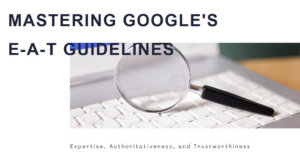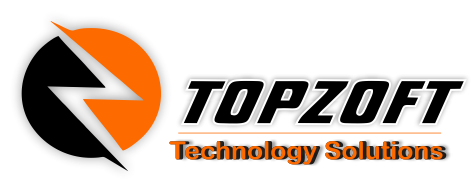Introduction:
Google’s E-A-T guidelines, which stand for Expertise, Authoritativeness, and Trustworthiness, are critical factors in determining the quality and relevance of content in search engine rankings. Understanding and adhering to these guidelines is essential for businesses and website owners looking to improve their visibility and credibility in search results. In this guide, we’ll delve into Google’s E-A-T guidelines and how they influence search rankings and content strategy.

1. Expertise:
Expertise refers to the level of knowledge, skill, and experience demonstrated by content creators or websites in their respective fields. Google assesses expertise by evaluating the qualifications, credentials, and expertise of authors and contributors, as well as the accuracy, depth, and relevance of the content they produce. To demonstrate expertise, businesses should highlight the qualifications, certifications, and industry recognition of their authors and contributors and ensure that their content is comprehensive, accurate, and well-researched.
2. Authoritativeness:
Authoritativeness refers to the perceived authority and credibility of a website or content creator within their industry or niche. Google evaluates authoritativeness based on factors such as the quality and quantity of backlinks, mentions, and references from other reputable sources, as well as the overall reputation and recognition of the website or author. To establish authoritativeness, businesses should focus on building a strong online presence, cultivating relationships with industry influencers and thought leaders, and consistently producing high-quality, original content that attracts backlinks and citations from other authoritative sources.
3. Trustworthiness:
Trustworthiness refers to the reliability, integrity, and transparency demonstrated by a website or content creator in their interactions with users. Google evaluates trustworthiness based on factors such as the security and privacy practices of the website, the accuracy and transparency of information presented, and the overall user experience and feedback. To build trustworthiness, businesses should prioritize website security, privacy compliance, and transparency in their communication and operations. They should also solicit and respond to user feedback, reviews, and inquiries promptly and professionally.
4. Implementing E-A-T in Content Strategy:
Integrating E-A-T principles into content strategy is essential for improving search rankings and building credibility with users. Businesses should focus on producing high-quality, authoritative content that demonstrates expertise, addresses user needs and concerns, and builds trust. This includes conducting thorough research, citing credible sources, using clear and accurate language, and providing valuable insights and solutions to users’ queries. Content should be tailored to the specific needs and interests of the target audience, and regularly updated to reflect the latest industry trends and developments.
5. Monitoring and Improving E-A-T:
Monitoring and improving E-A-T requires ongoing assessment and optimization of content and website performance. Businesses should regularly audit their content for accuracy, relevance, and credibility, and make necessary updates or corrections as needed. They should also track key performance indicators such as search rankings, traffic, engagement metrics, and user feedback to gauge the effectiveness of their E-A-T efforts and identify areas for improvement. By continually refining their content strategy and adhering to E-A-T guidelines, businesses can enhance their online presence and reputation over time.
Conclusion:
Google’s E-A-T guidelines play a crucial role in determining the quality and relevance of content in search engine rankings. By understanding and implementing E-A-T principles in content strategy, businesses can improve their visibility, credibility, and trustworthiness with users and search engines alike. By focusing on expertise, authoritativeness, and trustworthiness in content creation and website optimization, businesses can enhance their online reputation and build lasting relationships with their audience.


